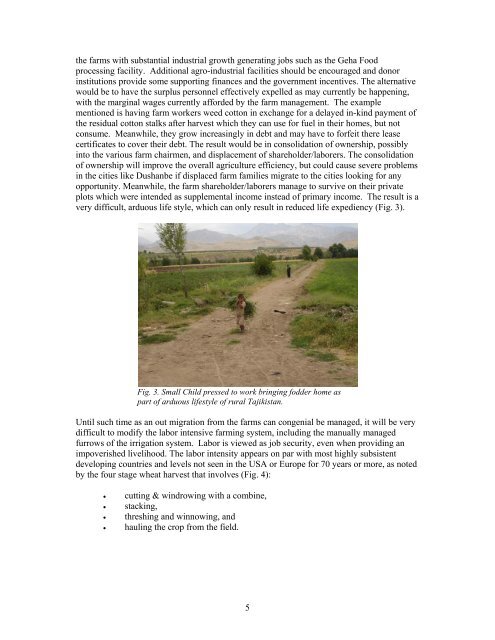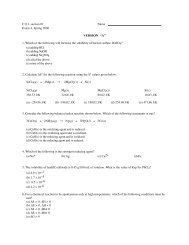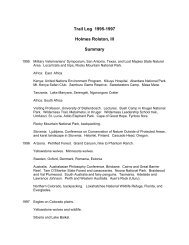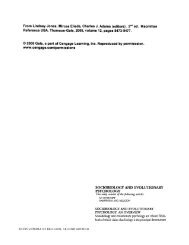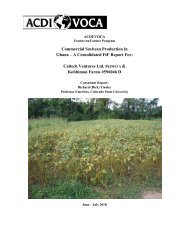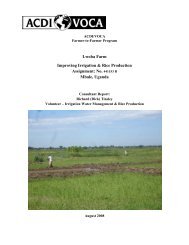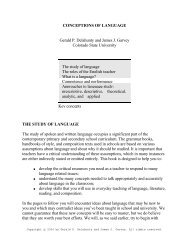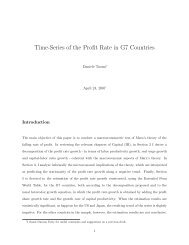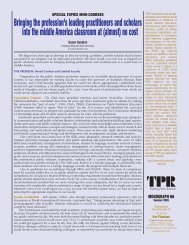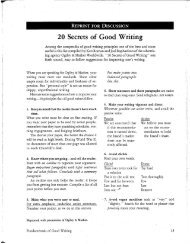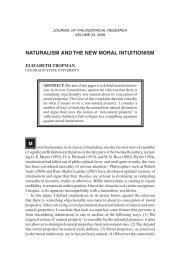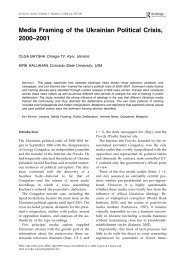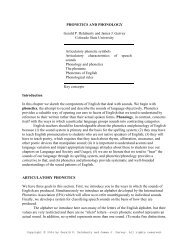Geha Foods Evaluation of Irrigation for Processed Tomatoes
Geha Foods Evaluation of Irrigation for Processed Tomatoes
Geha Foods Evaluation of Irrigation for Processed Tomatoes
Create successful ePaper yourself
Turn your PDF publications into a flip-book with our unique Google optimized e-Paper software.
the farms with substantial industrial growth generating jobs such as the <strong>Geha</strong> Food<br />
processing facility. Additional agro-industrial facilities should be encouraged and donor<br />
institutions provide some supporting finances and the government incentives. The alternative<br />
would be to have the surplus personnel effectively expelled as may currently be happening,<br />
with the marginal wages currently af<strong>for</strong>ded by the farm management. The example<br />
mentioned is having farm workers weed cotton in exchange <strong>for</strong> a delayed in-kind payment <strong>of</strong><br />
the residual cotton stalks after harvest which they can use <strong>for</strong> fuel in their homes, but not<br />
consume. Meanwhile, they grow increasingly in debt and may have to <strong>for</strong>feit there lease<br />
certificates to cover their debt. The result would be in consolidation <strong>of</strong> ownership, possibly<br />
into the various farm chairmen, and displacement <strong>of</strong> shareholder/laborers. The consolidation<br />
<strong>of</strong> ownership will improve the overall agriculture efficiency, but could cause severe problems<br />
in the cities like Dushanbe if displaced farm families migrate to the cities looking <strong>for</strong> any<br />
opportunity. Meanwhile, the farm shareholder/laborers manage to survive on their private<br />
plots which were intended as supplemental income instead <strong>of</strong> primary income. The result is a<br />
very difficult, arduous life style, which can only result in reduced life expediency (Fig. 3).<br />
Fig. 3. Small Child pressed to work bringing fodder home as<br />
part <strong>of</strong> arduous lifestyle <strong>of</strong> rural Tajikistan.<br />
Until such time as an out migration from the farms can congenial be managed, it will be very<br />
difficult to modify the labor intensive farming system, including the manually managed<br />
furrows <strong>of</strong> the irrigation system. Labor is viewed as job security, even when providing an<br />
impoverished livelihood. The labor intensity appears on par with most highly subsistent<br />
developing countries and levels not seen in the USA or Europe <strong>for</strong> 70 years or more, as noted<br />
by the four stage wheat harvest that involves (Fig. 4):<br />
• cutting & windrowing with a combine,<br />
• stacking,<br />
• threshing and winnowing, and<br />
• hauling the crop from the field.<br />
5


